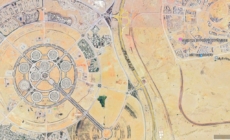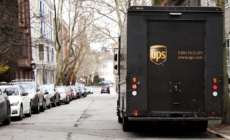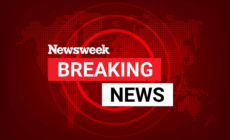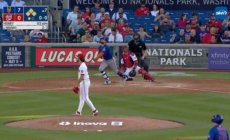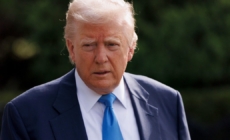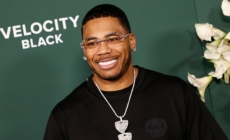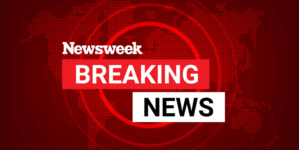-
Satellite images show progress on Egypt’s vast new capital - 35 mins ago
-
Man arrested after death of hockey player Adam Johnson won’t face charges - 38 mins ago
-
Why did Shedeur Sanders fall to the 5th round? 3 reasons to explain his slide - 42 mins ago
-
UPS says it’s cutting 20,000 jobs amid reduction in Amazon shipments - 47 mins ago
-
Did slew of false positive drug tests cost some inmates their freedom? - 54 mins ago
-
White House Slams Amazon Tariffs Move: ‘Hostile and Political’ - about 1 hour ago
-
Brandon Nimmo belts his SECOND homer of the game as Mets extend lead over Nationals - about 1 hour ago
-
Trump to ease tariffs on automakers by rolling back some import duties - about 1 hour ago
-
Mount Fuji climber is rescued twice in one week after returning for lost phone - about 1 hour ago
-
Tony Lam was an original influencer in Little Saigon — and he’s still got it - 2 hours ago
4 former Hong Kong lawmakers freed after years in prison under a Beijing-imposed security law
HONG KONG — Four former Hong Kong lawmakers were freed from prison Tuesday after serving more than four years for their convictions under a Beijing-imposed security law that crushed a once-thriving pro-democracy movement.
Claudia Mo, Jeremy Tam, Kwok Ka-ki and Gary Fan were among 47 activists arrested in 2021 for their roles in an unofficial primary election. They were the first of the convicted activists to reunite with their families and friends following years of separation.
Only vehicles involved in the release were seen leaving the three prisons in remote areas of Hong Kong. Security was tight and curtains on the vehicles were closed.
Mo’s husband, Philip Bowring, told reporters he was pleased Mo had returned home, saying she was “well and in good spirits.” But he said she would not give interviews for the time being. “She has to get used to life again in the outside world,” he said at their door, adding that they probably would go to England to see their grandchildren later.
In a video posted by local online media HK01, Fan thanked Hong Kongers and the media for their concern. He added he was going to reunite with his family.
The 2020 unofficial primary drew 610,000 voters, and its winners had been expected to advance to the official legislative election. Authorities postponed that, however, citing public health risks during the Covid-19 pandemic.
During the trial, prosecutors said the activists aimed to paralyze Hong Kong’s government and force the city’s leader to resign by aiming to win a legislative majority and using it to block government budgets indiscriminately. The judges said in their verdict last year that the activists’ plans to effect change through the unofficial primary would have undermined the government’s authority and created a constitutional crisis.
Only two of the 47 original defendants were acquitted. The remaining activists received prison terms ranging from four years and two months to 10 years on a charge of conspiracy to commit subversion. Mo, Tam, Kwok and Fan pleaded guilty and received reduced sentences.
Their years of separation have pained the activists and their families. The case involved democracy advocates across the spectrum. They include legal scholar Benny Tai, who got a 10-year prison term, and former student leader Joshua Wong, who has to serve four years and eight months.
Fourteen of the convicted activists have appealed, and prosecutors appealed the acquittal of one activist. All of the appeals are pending.
Critics of the court actions brought against the activists said their convictions illustrated how authorities crushed dissent following the massive anti-government protests in 2019, while also cracking down on media freedoms and reducing public choice in elections. They said the drastic political changes reflect the shrinking of the Western-style civil liberties in Hong Kong that Beijing promised to retain in the former British colony for 50 years after the 1997 handover to China.
The Beijing and Hong Kong governments insisted the national security law was necessary for the city’s stability. China defended the judicial decisions, despite criticism from foreign governments.
Source link
